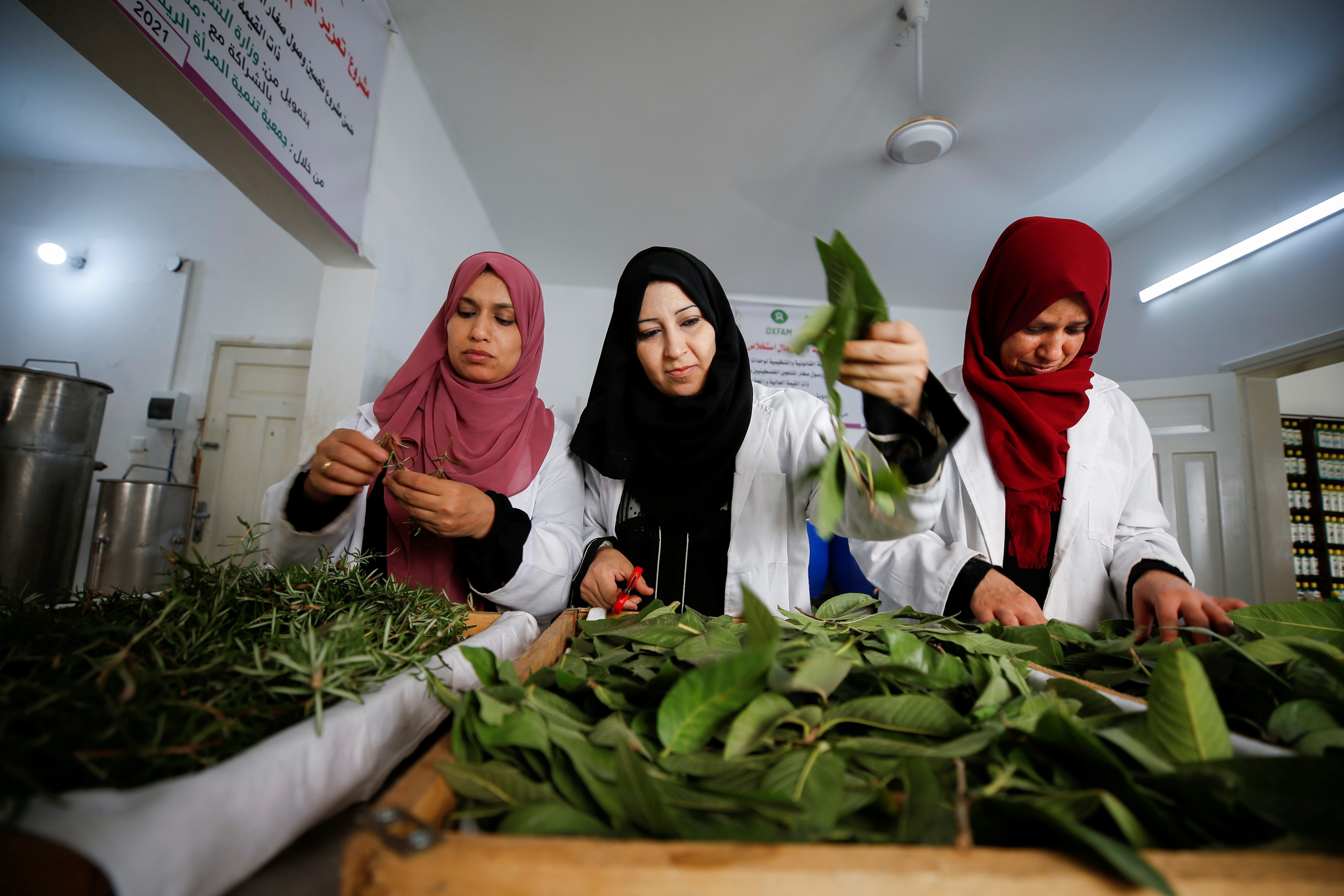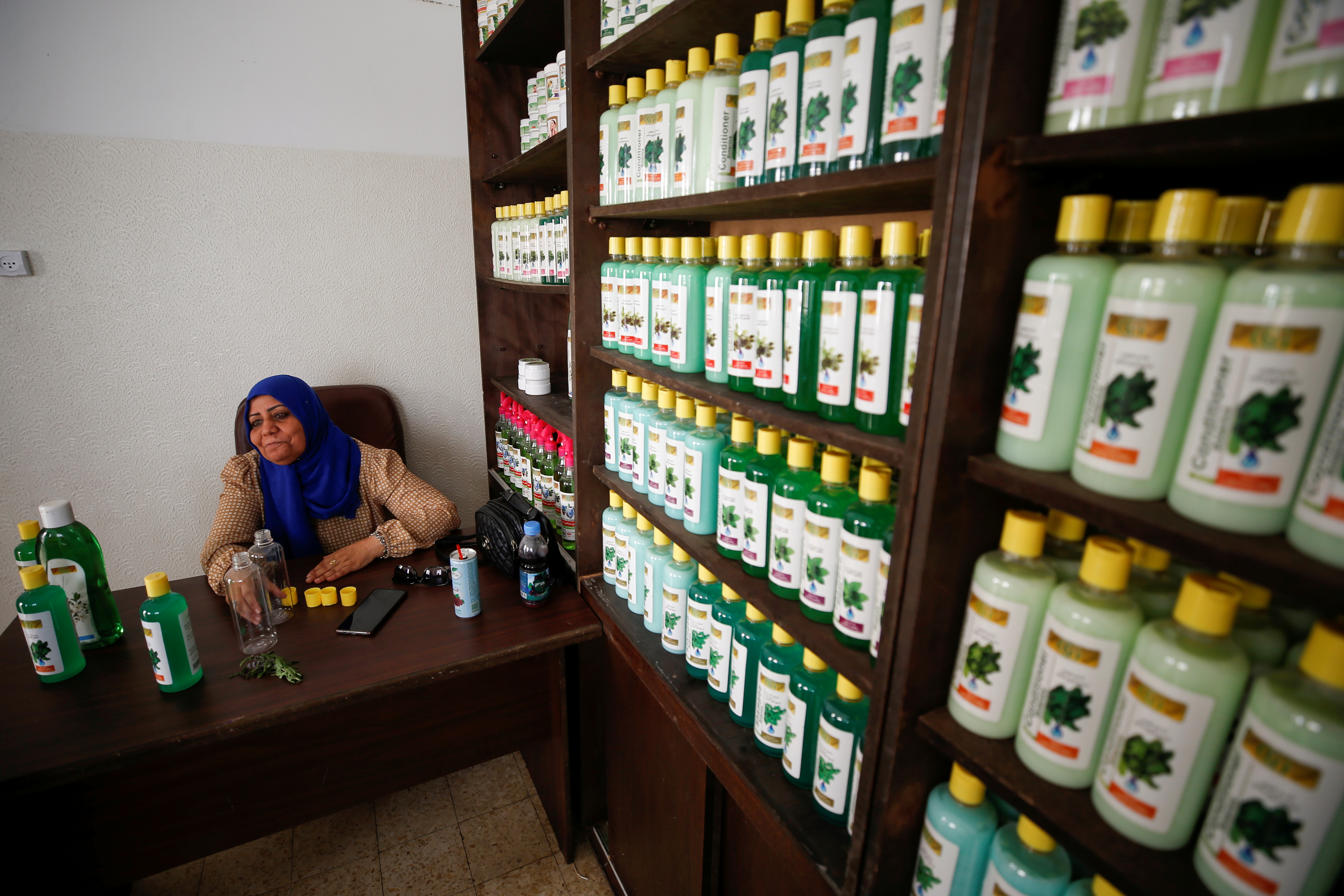SUMMARY
This is AI generated summarization, which may have errors. For context, always refer to the full article.

For years, Palestinian farmers have exported herbs to Europe where they have been turned into high-end cosmetics and beauty products.
Now a team of Gaza women have brought the process home, extracting the essential oils themselves and creating products such as shampoo and moisturizer which are sold in 50 stores, including 30 pharmacies, across the enclave.
From a factory in Gaza City, the internationally funded project’s four staffers, all women, use steam distillation to draw out the ingredients from plants including rosemary, basil, mint, thyme, and chamomile.

“When you hold the product, you feel like you are taking something from the earth – with no additives,” Refqa Al-Hamalawi told Reuters of the project, which sources herbs exclusively from farms run by women.
Their range already runs to 17 products, including cleansers and body wash, under the brand GG – standing for green gold, as the farmers of northern Gaza call mint.
“As women, we’re proud of the idea and the production, an idea like in European countries,” Hamalawi said.
The project, aimed at empowering women and boosting the economy, is supported by Australia and the global charity Oxfam.
While small scale so far, the women involved say it has already begun to have an impact in Gaza, where unemployment hovers around 50%. Female unemployment is even higher at 62%, according to the Palestinian Central Bureau of Statistics.
Dawlat Marouf said before the project, she struggled to make a living selling mint and thyme she farms in local markets.
Now, she “wakes up everyday at 5 am to come to the field and prepare 40-50 kg ordered by the factory”, the 55-year-old mother of 12 said.
Marouf’s daughter-in-law, Ekhlas, said she did not know herbs had uses outside of cooking.
The project will “develop us, make a source of income for our children and our families,” Ekhlas said.
Pharmacist Narmin Al-Banna stocks the products at her store. “I like these products because they are natural and have no chemicals in them. I tried them on many people, and many customers, and they gave me great feedback,” she said. – Rappler.com
Add a comment
How does this make you feel?
There are no comments yet. Add your comment to start the conversation.